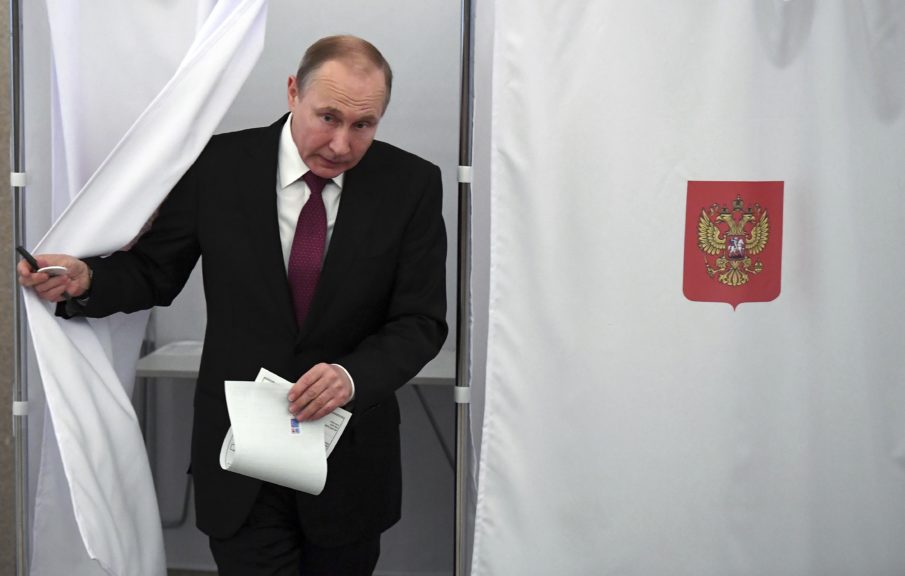As Russian President Vladimir Putin secured reelection for the fourth time on Sunday, tensions between his state and UK officials continue to mount, with British Foreign Secretary Boris Johnson accusing Putin’s regime of stockpiling banned chemical weapons and conducting research into how best to use them for assassinations.
On March 4th, a former Russian intelligence officer turned MI6 informant, Sergei Skripal, and his daughter Yulia were the victims of what UK officials claim was an assassination attempt using a Soviet-developed nerve agent the belongs to a class of chemical weapons known as Novichok. They were found unconscious on a park bench in Salisbury, England and remain in critical condition. At least twenty other people, including the first responding officer, were all also hospitalized for treatment for varying levels of exposure to the compound.
According to statements made by the UK government, the incident constitutes the first known use of such a weapon on European soil since the conclusion of the second World War. It may also not even be the only Russian assassination to take place on UK soil this month, as questions have begun to surface about the murder of Russian businessman Nikolai Glushkov in London on March 12th, eight days after the attack on Skripal.
“We actually have evidence within the last 10 years that Russia has not only been investigating the delivery of nerve agents for the purposes of assassination, but has also been creating and stockpiling Novichok,” Johnson told the BBC.
Novichok was first developed by the former Soviet Union to provide Moscow with a nerve agent comprised of chemicals that were not banned by the Chemical Weapons Convention, of which the Soviet Union, like Russia today, was a signatory member. The nerve agent was exposed to the world when Vil Mirzayanov, one of the scientists tasked with developing the weapon, went public. He has since lived in exile in the United States.
According to Mirzayanov, Russia already had enough Novichok stockpiled to kill “hundreds of thousands” by the time he blew the whistle, but according to Johnson, Russia has picked production back up since. Russia has not only denied Johnson’s claims, however, they have even denied the existence of Novichok to begin with.
There has never been any program under the group name novichok in the Russian Federation,” said Mr. Shulgin, Russia’s ambassador to the Netherlands and representative to the Organization for the Prohibition of Chemical Weapons.
“Back to 1992, Russia stopped all the activities in the area of military chemistry. Last year, we completed the destruction of all chemical arsenals and the completion of this program was duly certified by the O.P.C.W.”
That’s not the only bit of creative fiction being presented formally by Russian officials. In an interview on RT (Russia Today), which has such a reputation for misrepresenting facts that it recently was forced to register as a Foreign Agent in the United States, Russia’s ambassador to the United Kingdom, Alexander Yakovenko, seemed to question whether the incident even took place at all.
All the investigation about Skripal is classified,” he said. “Nobody even saw the pictures of these people in the hospital — whether they are alive, or maybe they are just in good health. Nobody talked to the doctors. You know, there is absolutely no transparency in this case.”
Johnson did not speak directly about either of these claims, though he did seem to be aware of them, telling the press that the Kremlin’s reaction “was not the response of a country that really believes itself to be innocent”.
Already have an account? Sign In
Two ways to continue to read this article.
Subscribe
$1.99
every 4 weeks
- Unlimited access to all articles
- Support independent journalism
- Ad-free reading experience
Subscribe Now
Recurring Monthly. Cancel Anytime.










COMMENTS